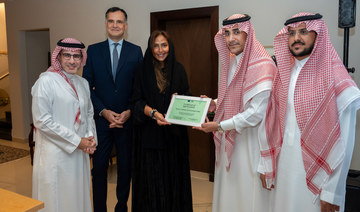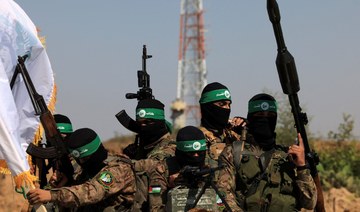LONDON: The BBC found itself in hot water after one of its anchors made a provocative statement implying that “Israeli forces are happy to kill children.” The remarks led to a public outcry, resulting in the BBC offering an apology.
Anjana Gadgil made the contentious comments during a Tuesday evening broadcast in which Israeli former Prime Minister Naftali Bennett was invited to discuss the country’s military action in Jenin.
The confrontation arose when Gadgil probed Bennett about the young victims of the military operation.
She said: “The Israeli military are calling this a ‘military operation,’ but we now know that young people are being killed, four of them under 18.
“Is that really what the military set out to do? To kill people between the ages of 16 and 18?”

Bennett countered Gadgil’s remarks, stating that all 11 people killed were militants and that the deaths were the responsibility of the young terrorists who chose to take up arms.
He further elaborated, saying several dozen Israeli civilian deaths over the past year resulted from terror attacks whose perpetrators were trained in Jenin, which he described as an “epicenter of terror.”
He added: “All the Palestinians that were killed were terrorists, in this case.”
Gadgil responded: “Terrorists, but children. The Israeli forces are happy to kill children.”
Bennett replied, asking: “If there’s a 17-year-old Palestinian that’s shooting at your family, what is he?”
The anchor continued: “The UN has defined them as children.”
Addressing the controversy, a BBC spokesperson said that the network “received feedback and complaints about an interview with Naftali Bennett on the BBC News channel regarding recent events in the West Bank and Israel.
“The complaints raised relate to specific interview questions about the deaths of young people in the Jenin refugee camp.
“The United Nations raised the issue of the impact of the operation in Jenin on children and young people.
“While this was a legitimate subject to examine in the interview, we apologize that the language used in this line of questioning was not phrased well and was inappropriate.”
Despite the controversy, the BBC maintained that it reported the wider events in Jenin in a fair and thorough manner.


























